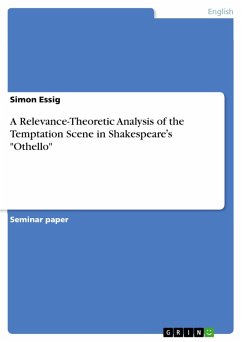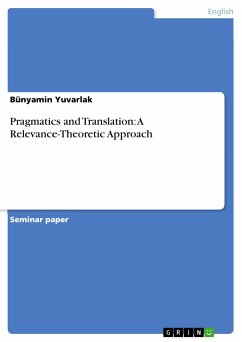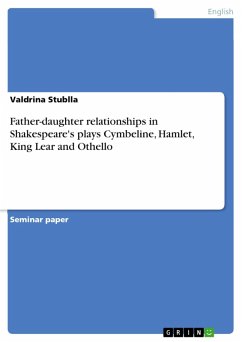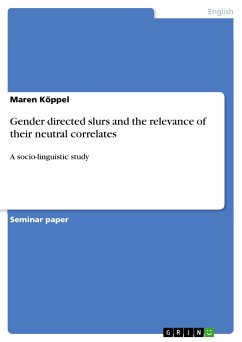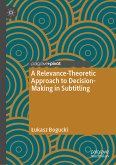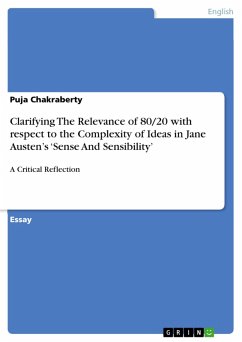Seminar paper from the year 2013 in the subject English Language and Literature Studies - Linguistics, grade: 1,0, University of Tubingen (Philosophische Fakultät, Englisches Seminar), course: Linguistic and Literary Perspective, language: English, abstract: The means of communication keep linguistics and literary studies occupied. They both try to conceive how we understand each other, how we extract meaning from utterances and how we use language to affect people in a predictable way. In the following, a linguistic theory encounters a literary text. Relevance theory as a cognitive pragmatic concept meets Othello by William Shakespeare. The focus of this paper is the linguistic analysis of the so called "temptation scene", in which the villain Iago manipulates Othello skilfully and only by the use of language. The objective of the analysis is to gain a deeper understanding of how the means of communication can succeed in altering and manipulating the beliefs of an individual as it occurs in Othello. The analysis scrutinises Iago's utterances and communicative strategies as well as the underlying comprehension and inference processes by Othello. Relevance theory as an inferential model of human communication serves as a pragmatic framework for the analysis. The first part of this paper introduces Othello, the object of the examination. The play's plot, the characters and the temptation scene are briefly analysed from a literary perspective. In the following, the main points of relevance theory are explained as they were published by Dan Sperber and Deirdre Wilson in 1989 and edited in 1995. Within the context of this paper, a full account of the theory cannot be given. However, the basic communicative and cognitive principles as well as the explicating and implicating processes are briefly discussed in order to gain a theoretical basis. Where further particular phenomena, such as metaphor or irony occur, a short relevance-theoretical account is given as they appear in the analysis. After the theoretical background is laid out, the analysis examines the exchanges of the temptation scene within the framework of relevance theory. The analysis concentrates on the pragmatic procedures which lead Othello to the manifestation of his assumptions yielding the final conclusion. It explains how Iago uses language strategically and deliberately to guide Othello through his understanding processes. The analysis further examines Othello's comprehension strategies which make him vulnerable to Iago's manipulative strategy. In the end, the insights of the analysis are summarised. The last chapter discusses how Othello's transformation was made possible by the means of human communication as explained by relevance theory.
Dieser Download kann aus rechtlichen Gründen nur mit Rechnungsadresse in A, B, BG, CY, CZ, D, DK, EW, E, FIN, F, GR, HR, H, IRL, I, LT, L, LR, M, NL, PL, P, R, S, SLO, SK ausgeliefert werden.
Hinweis: Dieser Artikel kann nur an eine deutsche Lieferadresse ausgeliefert werden.

